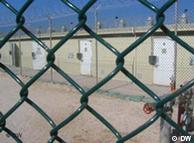*Inter Press Service*
Dahr Jamail and Ali Al-Fadhily
*FALLUJAH, Dec 25 (IPS) - Ahmed Ghazi has little reason to stock
Christmas toys at his shop in Fallujah. He knows what children want
these days.*
"It is best for us to import toys such as guns and tanks because they
are most saleable in Iraq to little boys," Ghazi told IPS. "Children try
to imitate what they see out of their windows."
And there are particular imports for girls, too, he said. "Girls prefer
crying dolls to others that dance or play music and songs."
As children in the United States and around the world celebrate
Christmas, and prepare to celebrate the New Year, children in Iraq
occupy a quite different world, with toys to match.
Social researcher Nuha Khalil from the Iraqi Institute for Childhood
Development in Baghdad told IPS that young girls are now expressing
their repressed sadness often by playing the role of a mother who takes
care of her small daughter.
"Looking around, they only see gatherings of mourning ladies who lost
their beloved ones," said Khalil. "Our job of comforting these little
girls and remedying the damage within them is next to impossible."
Hundreds of thousands of children have faced trauma of some sort. And
for others, the lack of a normal life is trauma enough.
Just a lack of entertainment is developing into a serious problem. There
are only 10 cinemas in Baghdad, and two dilapidated public parks. These
are no longer safe for children.
Children do not go out much to play, and they are not sure of home any
more. The United Nations estimates that more than 100,000 Iraqis are
fleeing the country every month. The number of Iraqis living in other
Arab countries is now more than 1.8 million. There are in addition more
than 1.6 million internally displaced people within Iraq.
The group Refugees International says that the increasing number of
people fleeing Iraq means that this refugee crisis might soon overtake
that in Darfur. And children suffer most from leaving, and they suffer
most where they go.
"Homeless children are inclined to be rough, and isolated from their new
neighbourhood and new school colleagues," Hayam al-Ukaili, a primary
school headmistress in Fallujah told IPS. "They do not mix in with their
new atmosphere as they should. It is as if they feel it is imposed upon
them, and they simply reject it."
Teachers and social workers say children have begun to nurse a strong
hatred of the United States. No more is the United States the image of a
good life.
"Children have lost hope in the United States and the Iraqi government
after the situation has only worsened every day," Abdul Wahid Nathum,
researcher for an Iraqi NGO which assists children told IPS in Baghdad
(he did not want the organisation to be named).
"Their understanding of the ongoing events is incredible," he said. "It
is probably because the elder members of the family keep talking
politics and watching news. Talking to a 12-year-old child, one would be
surprised by the huge amount of news inside his head, which is not right."
"Children are the most affected by the tragic events," Dr. Khalil
al-Kubaissi, a psychotherapist in Fallujah told IPS. "Their fragile
personalities cannot face the loss of a parent or the family house along
with all the horror that surrounds them. The result is catastrophic, and
Iraqi children are in serious danger of lapsing into loneliness or
violence."
The difficulties of children have become particularly noticeable this
year. "The only things they have on their minds are guns, bullets, death
and a fear of the U.S. occupation," Maruan Abdullah, spokesman for the
Association of Psychologists of Iraq told reporters at the launch of a
study in February this year.
The report warned that "children in Iraq are seriously suffering
psychologically with all the insecurity, especially with the fear of
kidnapping and explosions."
The API surveyed more than 1,000 children throughout Iraq over a
four-month period and found that "92 percent of the children examined
were found to have learning impediments, largely attributable to the
current climate of fear and insecurity."
With nearly half of Iraq's population under 18 years of age, the
devastating impact of the violent and chaotic occupation is that much
greater. Three wars since 1980, a refugee crisis of staggering
proportions, loss of family members, suicide attacks, car bombs and the
constant threat of home raids by occupation soldiers or death squads
have meant that young Iraqis are shattered physically and mentally.
As early as April 2003, the United Nations Children's Fund had estimated
that half a million Iraqi children had been traumatized by the U.S.-led
invasion. The situation has degenerated drastically since then.
A report issued by Iraq's Ministry of Education earlier this year found
that 64 children had been killed and 57 wounded in 417 attacks on
schools within just a four-month period. In all 47 children were
kidnapped on their way to or from school over the period.
This blog serves as a continuum of km.wittig; http://akak8.blogspot.com.
26.12.06
Children Pick Their Christmas Toys
20.12.06
Dear friend of United for Peace and Justice,
With the situation in Iraq spiraling out of control, Bush Administration officials have recently floated the idea of a "troop surge" -- sending as many as 30,000 more troops to Iraq. With U.S. soldiers being maimed and killed with growing frequency, and the number of U.S. deaths in Iraq rapidly approaching the grim milestone of 3,000, this startlingly stupid plan can only mean more deaths -- both U.S. and Iraqi -- and a deeper quagmire.
But far from rejecting it, leading Democrats, including Democratic Senate Leader Harry Reid, have expressed support for the notion of sending more troops to Iraq.
Obviously, they haven't been listening to the will of the people, whose opposition to the war gave them control of the Congress. Only 12% support sending more troops to Iraq -- the overwhelming majority want the troops to come home now.
So we need to speak louder than ever:
1) Call or email the office of Senator Harry Reid and tell him you expect the Democrats to follow the clear wishes of the electorate and bring the troops home from Iraq.
Call Reid at 202-224-2158 or 202-224-7003 or email his chief of staff at Susan_McCue@reid.senate.gov
2) Plan to mark the 3,000th U.S. death with a vigil or other event in your community. Under the slogan, "Not One More Death, Not One More Dollar," the American Friends Service Committee, a member group of UFPJ, is coordinating events all around the country. Learn more at www.afsc.org/3000
3) Now more than ever, be sure to join us in Washington, D.C., on Saturday, January 27, for a massive peace march calling on Congress to use its power to bring the troops home now! Leaflets, web banners, ride and housing boards, and much more for this urgently needed protest are available at www.unitedforpeace.org
With hopes for peace and justice in this holiday season,
UFPJ National Staff
ACTION ALERT * UNITED FOR PEACE AND JUSTICE
www.unitedforpeace.org | 212-868-5545
To subscribe, visit www.unitedforpeace.org/email
16.12.06
Make Believe Psyop
There is No Such Thing as a War on Terrorism |
| by Javier Marías |
| Our perception of time is all too variable, and there are many factors that can strangely and dramatically affect it, breaking the thread of continuity. When a love affair ends, for example, everything that belonged to the time of that love suddenly becomes the "past," and things that happened only a year ago when you were with the person who left you, or whom you left, now seem distant and incongruously remote. The same happens after the death of someone we love, especially after the mourning is over. Then, even things that didn't directly concern that person seems part of some bygone era. These temporal abysses also open up in the aftermath of great catastrophes. All that happened before Sept. 11, 2001, has become remote. It's been three years, according to the calendar, but psychologically it feels like no fewer than 10 - and that's true for the entire world. Don't we all feel that the war in Afghanistan, which came only a little later, began decades ago? That might be because the Afghan war was the only truly direct consequence of the attacks on the twin towers and the Pentagon and was therefore in some way "contemporary" with those killings, unlike the outlandish, unjustified and illegal war in Iraq and its interminable and incomprehensible aftermath. Ordinary citizens, even those who were once most fully convinced of the justice and necessity of the invasion of Iraq, know instinctively and naturally that the Iraq war and the terrorist attacks are two separate events. Political leaders too often forget about this "perceptive factor" among the citizenry, which is not necessarily based on reason. They forget, too, that very little can be done against it. After the March 11 train bombings in Spain, Spaniards immediately perceived two things: First, that Prime Minister José María Aznar's administration was indirectly responsible for the horror, which would not have occurred if Aznar had not been so eager to promote his alliance with Tony Blair and George W. Bush. Second, that his administration lied about the probable authorship of the attacks - or delayed the truth, which under the circumstances amounted to the same thing - for political advantage. Whether accurate or erroneous, true or false, there's no way to uproot such perceptions. And while they are of little use in the eyes of the law, they are useful when it comes to deciding whom to vote for in an election. That, and nothing else, was what happened in Spain. Aznar's administration had been in power for eight years when it was voted out three days after the attacks. All those malicious commentators on our election results deliberately forgot two things: that in times of crisis, people tend to support the existing government, and that Spain has endured Basque terrorism for 30 years without faltering. Perhaps it's simply that our hides have toughened; our hearts and minds have grown more accustomed to futile, gratuitous murder. It is a terrible thing, but little by little you get used to the possibility of indiscriminate attack just as we've all grown used to the certainty that there will be deaths on the highways every weekend. "It's always going to happen - let's hope it doesn't happen to us," becomes the unformed, unconscious thought. Maybe that's why Spain, six months later, seems already to have overcome the trauma of the railway bombings. There is no more fear than there was before, nor fewer liberties. Today's Spanish government shows no interest in constantly sounding alarms. Our habits seem as unchanging as the streets, the bars, the restaurants, the airports and the train stations, all just as crowded as ever and as lively and buoyant. It's also certainly true that for most of us, not a day goes by without remembering the almost 200 victims of March 11, with pain and a keen awareness that chance, fate and bad luck continue to be as important today as they were in humanity's less foreseeing epochs. Here in Spain, we don't feel as if we are at war because we aren't. And neither are the inhabitants of the United States, however vociferously many Americans may insist that they are. War is something else entirely. No semi-normal life can be led while a war is going on. The residents of Madrid who lived through the siege of their city between 1936 and 1939 know that very well. The survivors of the daily bombardments of London during World War II know it, too. And those Americans who participated in that war know it, also. There is no war against terrorism. There can be no such thing against an enemy that remains dormant most of the time and is almost never visible. It's simply another of life's inevitable troubles, and all we can do as we continue to combat it is repeat Cervantes's famous phrase "Paciencia y barajar": "Have patience, and keep shuffling the cards." |
15.12.06
Merkel Makes Human Rights a Top Priority
A leader I could be proud to call my own
In keeping with her consistently outspoken stance on sensitive issues, Germany's chancellor did not mince words on human rights during her visit to China this week. Experts say her style will increase Germany's clout.
German Chancellor Angela Merkel is setting a clear course when it comes to human rights.
"This is an issue that is being supported from the top and it is significant that this is the case," said Günter Nooke, the German government's human rights representative.
He said the differences between Merkel and her predecessor Gerhard Schröder were "self-evident." Schröder, who had a very close relationship to Russian president Vladimir Putin, had called the leader a "flawless democrat." Merkel, on the other hand, addressed sensitive issues such as Chechnya when she went to Moscow in January.
She also broached the delicate subject of the US prison camp at Guantanamo Bay before and during her inaugural visit to Washington in January.
No need to schmooze in China
Eberhard Sandschneider, director of the German Council on Foreign Relations' Research Institute, said he wasn't surprised that Merkel had talked about human rights concerns while in Beijing.
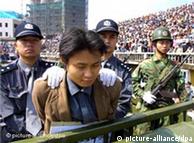 Bildunterschrift: Großansicht des Bildes mit der Bildunterschrift: Experts estimate that at least 8,000 people get the death penalty in China each year
Bildunterschrift: Großansicht des Bildes mit der Bildunterschrift: Experts estimate that at least 8,000 people get the death penalty in China each year
"It isn't astonishing, as human rights are always an issue when one of our politicians goes to China," Sandschneider said. "This sends a signal at home."
But Merkel's course was more positive than Schröder's, Sandschneider said.
"We finally have someone who recognizes that China doesn't need to be schmoozed," he said. "Rather, a common base needs to be found and we can go from there. They can handle the criticism."
Merkel is a tough but honest partner
Merkel said at the end of her China visit that the country "still had deficits in human rights.
"The Chinese are tough negotiators," Merkel told German television ZDF. "So we have to counter just as toughly and make clear that we don't have anything to give away."
This style of dialogue was by no means detrimental to international ties, Nooke said.
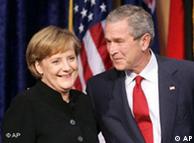 Bildunterschrift: Großansicht des Bildes mit der Bildunterschrift: US President Bush praised Merkel as a "clear thinker"
Bildunterschrift: Großansicht des Bildes mit der Bildunterschrift: US President Bush praised Merkel as a "clear thinker"
"An interesting partner is someone who has their own opinion," Nooke said. "The fact that there are differences of opinion doesn't make us any less interesting."
Merkel's criticism of human rights issues in Beijing, Moscow and Washington have been positively received on the international stage. Sandschneider said this was because she came across authentically.
"She has an honest and straightforward manner and people value this," Sandschneider said.
The first step in a long process
Human rights organizations have welcomed Merkel's course. Beate Wagner from the Human Rights Forum's (HRF) coordination group said there had been a consistent upgrading of human rights under Merkel. The HRF is a network of more than 40 German non-governmental organizations, which critically monitor the human rights policies of the German government.
"Human rights issues have been explicitly well positioned on her inaugural visits," said Wagner, who is also secretary general of the German Society for the United Nations. She said this marked an "improvement" to the Schröder government and was a first step.
"Now, more work needs to be done," Wagner said. "We'll have to see how much gets implemented in bilateral relations. But we are positively looking forward to see what happens next."
Of course, experts agree that Merkel's criticism will not solve problems overnight.
"You can't have the illusion that one government is going to make a difference," Wagner said. "But it is part of an international climate, which can exert pressure."
Germany should use its international role in 2007
In January, Germany will take over the six-month rotating presidency of the Council of the European Union. It will also hold the G8 presidency in 2007.
 Bildunterschrift: Großansicht des Bildes mit der Bildunterschrift: Germany will chair the Council of the European Union for the first half of 2007
Bildunterschrift: Großansicht des Bildes mit der Bildunterschrift: Germany will chair the Council of the European Union for the first half of 2007
Wagner said Germany could use these positions to increase international pressure regarding human rights.
"It can set impulses in UN meetings, for example, when it has the voice as head of the European Council," she said.
Nooke said he was interested in keeping human rights on the agenda in the European Council next year.
"It is important that Europe pull together and carry weight in international bodies," Nooke said. "We have to have the courage to address critical issues. It can be that someone may not be happy with this, but in the medium and long term, it's worth it."
12.12.06
11.12.06
IVAW on Iraq Study Group Report: “It’s the Occupation, Stupid!”
IVAW on Iraq Study Group Report: “It’s the Occupation, Stupid!”
After nine months of extensive study and research, the Iraq Study Group has produced a comprehensive report that makes a realistic and horrifying assessment of the situation in Iraq as it stands today and proposes an incredibly ambitious and admittedly imperfect plan for the future of our involvement there. The report alludes to gross mismanagement by outgoing Secretary of Defense, Donald Rumsfeld, but offers no critique of the U.S.’s preemptive invasion based on lies. While the report calls for some important steps toward undoing the quagmire in Iraq -- notably the need to send a message to the Iraqi people that the U.S. has no plans to stay indefinitely and should dismantle its permanent military bases there -- it ignores the fundamental circumstance that underlies the crisis we face in Iraq.
The real problem in Iraq is the U.S. military occupation.
The Iraq Study Group’s report has three basic recommendations:
1. It proposes a comprehensive diplomatic effort regionally and internationally to support stabilization of Iraq.
2. It lays out ambitious benchmarks for the Iraqi government to get them to “stand up” so that we can “stand down.”
3. It recommends maintaining significant troop levels in Iraq to provide logistical support, rapid response capabilities, and training to the Iraqi Army and Police well into 2008.
Each of these recommendations is problematic and will not end the war.
1. The Iraq Study Group report calls for diplomatic efforts with other countries in the region and beyond to help the U.S. stabilize Iraq. While there is no doubt that the U.S. should engage in sincere diplomatic efforts, this is unlikely given the U.S.'s track record in the region. The U.S. showed complete disinterest in genuine diplomacy during the build up to the war, and acted unilaterally and preemptively in its invasion of Iraq. The Bush administration, with the blessings of Congress, made it clear that the U.S. was going to invade Iraq regardless of a U.N. decision and despite the objections of the international community, including nations in the Middle East. After millions of people worldwide, including Americans, protested the invasion, Bush called them a “focus group.” We have lost credibility in the region and have shown scorn for diplomacy and international law and opinion. As long as the U.S. is militarily occupying Iraq, diplomatic efforts will fail.
Unless diplomacy is accompanied by a swift withdrawal, U.S. troops and innocent Iraqis will continue to be killed and wounded. A study published this October in The Lancet medical journal estimated 655,000 Iraqis have died as a result of the U.S. led war and occupation. The death toll of U.S. service members is quickly approaching 3,000, with at least an additional 50,000 wounded. In the time the Iraq Study Group spent developing their report, roughly 700 Americans and 27,000 Iraqis were killed in the increasing violence and chaos. What we need is an end to the occupation, not more inaction and stalling tactics from Washington. Each day this war continues, our brothers and sisters in the military are being killed and wounded, along with untold numbers of Iraqi civilians.
2. The Iraq Study Group report suggests that we need to “help Iraqis help themselves,” reflecting the condescending attitude of an occupying nation toward one of the oldest civilizations on earth. The problem in Iraq is not the Iraqi government’s failure to “stand up.” The foremost problem in Iraq is the U.S. occupation. As long as the occupation continues, any Iraqi government working in tandem with the United States will lack legitimacy among the Iraqi people, the vast majority of whom want the U.S. military to leave their country. Specific recommendations of the report appropriately call for the U.S. to send a clear message to the Iraqi people that we have no intention to stay in Iraq long-term or control Iraqi oil. But at the same time, the report rejects the idea of any timetable for withdrawal, and makes it clear that the U.S. will maintain a significant military force there well into 2008.
The Iraqi government's inability to provide security and stability has little to do with any incompetence of the Iraqis, but is a direct result of the chaos and political disunity that comes with this U.S. occupation. As the report describes, without the necessary national unity, the Iraqi government has little control outside of the Green Zone. It has been ineffective in providing its people with basic services such as electricity, drinking water, health care, and education, as well as being unable to provide even minimal security. Many Iraqis see the government as a tool of the U.S. occupation and no amount of “carrot and stick” incentives from the U.S. will change this basic reality. Until the occupation leaves, no Iraqi government will have the popular support of the Iraqi people and therefore will be unable to gain control and effect positive changes.
3. The Iraq Study Group recommends significant numbers of U.S. troops staying in Iraq through 2008 to continue to train and equip the Iraqi Army and Police. The report advises the number of U.S. troops assigned to this mission to rise from the current 4,000 to approximately 20,000 U.S. soldiers embedded with Iraqi units. Again, the problem in Iraq is the U.S. occupation, and no level of U.S. training of Iraqi military forces will succeed in providing security in Iraq. A consideration that the Iraq Study Group leaves out is the issue of Iraqi military loyalty. Many members of both the Iraqi army and police forces are loyal not to the Iraqi government, but to various local and ethnic militias and leaders who, in many cases, are doing more to support their needs and interests than the national government.
Many of us who served in Iraq training the Iraqi Army and Police can attest to the difficulty inherent in this relationship. A core problem is that there is a huge cultural and language barrier between us. In addition, from the U.S. troops' standpoint, there is a lack of trust of Iraqis because of a history of many Iraqi Army and police being members of militias or the insurgency. Every day we hear reports of armed men in military or police uniforms kidnapping and killing Iraqi civilians. Often, U.S. forces discover that the Iraqis they were working to train were giving information and assistance to the insurgency in order to attack American personnel. And from the standpoint of the Iraqis, the U.S. troops are seen as occupiers who have caused immense harm and destruction in their communities. Iraqis have seen the U.S. military operate with reckless disregard of their human rights, torturing them at Abu Ghraib, leveling Fallujah killing hundreds of civilians, and massacring children in Haditha. Iraqis cannot forget these war crimes that have largely gone unpunished.
No amount of training of the Iraqi Army will change the fact that as long as we occupy Iraq the insurgency will continue, Al Qaeda terrorists will be drawn to Iraq, and militias spurred by sectarian tensions will flourish. Providing the Iraqi Army with more weapons and equipment will only increase the chances that such weapons will be used against U.S. troops and Iraqi civilians.
The findings of the Iraq Study Group will be used as cover for the administration and Congress to save face about the horrible blunders of this war, and in effect, will allow the occupation to continue indefinitely. It's easy to analyze the problems from afar, but to those of us who have experienced the ground truth in Iraq and have sacrificed the most, we know that eventual peace and stability in Iraq begins with immediate withdrawal of all occupying forces. The only way this will happen is if the American people force Congress to stop funding the war. There are presently enough funds from the fall 2006 budget appropriations to ensure troops will have all supplies and equipment they need to come home quickly and safely. But we must not allow further appropriations for our continued occupation in Iraq to prolong the suffering of our troops and the Iraqi people.
10.12.06
Hypocrite is as Hypocrite Does
BUSH ADMINSTRATION IMPLICATED IN NARCO DEATH SQUAD COVER UP
by Alex Gabor
In a developing story that has barely received any national or international media attention, one that has been brewing for close to three years now, is finally coming to the attention of a growing number of Congressional leaders and international investigative journalists.
Narco News investigative journalist, government muckraker and "Borderline Security" author Bill Conroy has published over 41 articles on the growing cover-up involving a dozen dead bodies found just south of the Mexican border.
He has been intimidated by ICE (Homeland Security) agents and other government officials for his vast coverage of this story of corruption that leads to the highest officials in America and may result in further resignations in the Bush administrations' tattered war torn Presidency.
Recently, the London based Observer published a story written by David Rose that failed to mention the groundwork laid by Conroy, yet Rose acknowledged Conroy in a private email, highlighted by facts that the United States Department of Justice, through the United State's Attorney's Office is involved in a massive cover-up of the operations that paid out hundreds of thousands of dollars to an informant directly involved in the murder of a Mexican attorney, one of the twelve bodies in the House of Death story.
Attorney General Alberto Gonzales has been attempting to suppress evidence from public view by invoking national security issues in an attempt to distance itself from the fallout amid growing curiosity of non-mainstream investigative journalists and public citizens.
Recent coverage in a Dallas Morning News story by Alfredo Corchado contradicts the stories put out by Rose and court records show that a paid government confidential informant was involved in more than one murder.
A group calling itself the National Security Whistleblowers Coalition has filed a Freedom of Information lawsuit against the Department of Justice which seeks to expose information implicating government officials behind the death squads involved on both sides of the border in more than 50 murders related to DEA, Homeland Security and Mexican police covert operations.
Conroy, who claims the Attorney General knew about payments of funds to death squad operators in Mexico that resulted in at least a dozen murders, has been asking for a congressional investigation into the matter.
His work has apparently caught the attention of Henry Waxman's office in Los Angeles, who is soon to take over as head of the Government Reform Committee, and is not too keen on secrecy within the Bush administration.
The committee is gearing up for public hearings after the new majority Democrats take office on a wide range of topics including the War in Iraq, the War on Drugs, government spending and government contracting. Prior efforts to bring this matter before Congressional leaders had failed.
It would appear that any information made public which exposes the federal government and reveals the truth about its secret covert operations that could be construed or in fact are illegal or actual war crimes comes under the heading of "national security", and tends to be discredited or confused by the governments' own bought and paid for press.
To date, over the past twenty years, the Federal government has spent over $500 billion on the war on drugs and the amount of money laundered from drug sales within the borders of the US and globally through an international network of bankers who take deposits from drug money launderers worldwide exceeds $1 trillion annually.
95% of the people listed on the DEA's most wanted fugitive list in Los Angeles are Latin American.
The questions that most international journalists should be asking is, did George Bush know that the US Department of Justice was paying confidential informants to be involved in racially motivated covert death squad operations and if so why were they allowed to continue, and if not, why not?
Isn't he after all, the Commander in Chief of the War on Drugs as well as the War on Terrorism and the War on Iraq?
Copyright © 2006 by Alex S. Gabor. All Rights Reserved.
If America Knew
If Americans Knew
http://ifamericaknew.orgIf Americans Knew Receives Death Threat
October 2, 2003
After debating on “How Can Peace Be Achieved Between Israelis and Palestinians?” Thursday, October 2nd, 2003, Alison Weir and If Americans Knew received a voicemail message saying: “On Monday, at 2 PM, you better not be in your office. Because me and my buddies, who were trained in the Israeli Army, will come and kill every single one of you...”
The caller went on to say, “This is not a joke. On Monday you better watch out. Don’t come to work. And close your organization or you’re going to die.”
The recipient of the threat, Alison Weir, speaks widely on the Israeli-Palestinian issue. She is executive director of If Americans Knew, a nonprofit organization known for providing information on the Middle East.
In last night’s debate she predicted that Israelis and Palestinians searching for a just peace would succeed when US tax money no longer goes to fuel Israeli militarists such as Prime Minister Ariel Sharon. The Kahan Commission—an independent, official Israeli commission of inquiry—found Sharon indirectly and personally responsible for the 1982 Sabra and Shatila massacres in Lebaonon.
Weir said that she takes the caller seriously. “I am named an ‘enemy’ on a website of the Jewish Defense League, a group known for violent acts – most recently, police are investigating charges that its members planned to firebomb Congressman Darrell Issa’s office in southern California.”
Weir says that there has long been concerted efforts to intimidate people speaking out on this issue, but says, “We will not be silenced. I hope others will join us.”
Weir says that she plans to be in her office all day Monday, working to inform the public on this urgent issue.
Berkeley police are investigating the death threat.
Anyone with information about this incident can contact the Berkeley Police Department at 510-981-5900.
9.12.06
AI Criticizes Germany, EU on Human Rights
Amnesty International Criticizes Germany, EU on Human Rights
Human rights organization Amnesty International has sharply criticized Germany and the European Union, saying they lack an interest in human rights.
Barbara Lochbihler, secretary general of the German branch of Amnesty International, said on Friday she was disappointed with the German government for its lack of initiative in the realm of human rights.
"We must recognize the fact that there is no end to human rights violations in sight," Lochbihler said. "The US Congress recently passed a bill that again introduces military courts which should clearly operate below international legal standards. The bill also allows interrogation methods that should be clearly labeled as torture."
Germany will assume the presidency over the European Union on Jan. 1. It has so far made no indications that it plans to focus on human rights during the six months it will be charged with conducting the EU's business.
 Bildunterschrift: Großansicht des Bildes mit der Bildunterschrift: Lochbihler expects more from Germany and the EU
Bildunterschrift: Großansicht des Bildes mit der Bildunterschrift: Lochbihler expects more from Germany and the EU
For Amnesty International, this is a problem -- especially in view of the human rights violations that have been taking place under the umbrella of the fight against terror.
No sign of closure
A thorn in the eye of many human rights organizations is the US-run prison camp at Guantanamo Bay in Cuba. Controversial since its establishment, the camp has some 500 inmates, most of whom have never been charged. EU lawmakers and civil rights campaigners have for a long time called on US officials to close the facility.
"In Guantanamo, new buildings are being built, for example for these military courts. There is no sign that it's going to get closed," Lochbihler said.
The role of Germany's government officials and intelligence services in the fight against terror must, according to Amnesty International, be clarified. Especially, in those cases, in which there are indications that human rights violations may have been planned on German soil -- in the US Army European headquarters in Stuttgart-Vaihingen, for example.
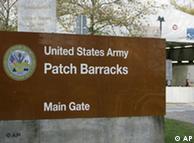 Bildunterschrift: Großansicht des Bildes mit der Bildunterschrift: The US Army Patch Barracks in Stuttgart-Vaihingen
Bildunterschrift: Großansicht des Bildes mit der Bildunterschrift: The US Army Patch Barracks in Stuttgart-Vaihingen
"It is also not clear what the government knew about the abduction of Mr. el Masri," Lochbihler said.
Who knew what?
In 2003, the CIA abducted German national Khaled el Masri in Macedonia and flew him to Afghanistan where he was detained for five months as a terror suspect and allegedly mistreated. US officials acknowledged to the German government in 2004 that the man had been mistaken for somebody else and had been wrongly detained.
A German parliamentary committee has been investigating Berlin's role during the Iraq war, the CIA's kidnapping of el Masri as well as the CIA's secret flights and detention centers.
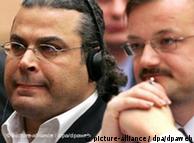 Bildunterschrift: Großansicht des Bildes mit der Bildunterschrift: El Masri (left) was kidnapped by CIA agents
Bildunterschrift: Großansicht des Bildes mit der Bildunterschrift: El Masri (left) was kidnapped by CIA agents
Former German Foreign Minister Joschka Fischer and his successor Frank-Walter Steinmeier are expected to testify before the committee on Dec. 14.
"I expect the government to take concrete measures that such abductions never take place again," Lochbihler said. "And to give clear instructions to intelligence services that nobody should use or participate in torture."
Amnesty International has announced it will present a memorandum on Germany's EU presidency on Jan. 11.
8.12.06
WHERE WOULD JESUS BANK?
WHERE WOULD JESUS BANK?
by
Catherine Austin Fitts
July 4th, 2004

El Greco – Jesus and the Money Changers
out them that sold and bought in the temple, and
overthrew the tables of the money changers”
-- Mark 11:15
I think of Jesus as a real deal, straight up kind of guy who always cared deeply about his fellow man. That's why we often ask “What would Jesus do?” when looking for the action of highest integrity.[1]
Jesus and the Bankers
Jesus acted with ferocious and bold integrity when he threw the money changers out of the temple. Needless to say, he hiccuped their cash flows on what otherwise would have been a big grossing day. Their business model threatened, the priests who managed the money changers insisted that the Romans crucify Jesus. The Romans tried to pawn the problem off on the local king, Herod, who ducked and sent Jesus back to the Romans. The Romans, still looking for a way out, tried a flogging. That did not work. The priests meanwhile had succeeded in persuading the crowd to support them and scapegoat Jesus. Thirsting for a crucifixion, the crowd voted to set the criminal Barabbas free instead of Jesus.
Jesus died because the crowd voted for the criminal enterprise. The crowd voted for the priests and their rich endowments and their alliance with the money changers. The crowd did not ask “Cui Bono?” which is Latin for “who benefits?” If they had, they would have seen the real deal on who was making money on the death of Jesus and voted with their conscience, and for their own best interests instead.
It's 2000 Years Later and We're Still Voting for the Criminals
Looking around today, it would appear that more than two thousand years later our popular vote is still backing an unholy alliance of “priests” and their rich endowments,[2] “money changers” (now called central bankers), criminal enterprises[3] and the continuous growth of dirty money, market manipulation and warfare.
The 1990s was a period in which the illumination of the dirty money in American politics and business really came out of the closet. The stories of the 1980s Iran Contra period financial fraud and of government conspiring with private industry in illegal weapons deals and drug trafficking to fund a secret government became widely known, starting with Senate hearings that were broadcast world wide. National Security Council involvement during the 1980s exploded onto the Internet with the “Dark Alliance” series published in the San Jose Mercury News in 1996 and tales of Bush and Clinton involvement in the illegal arms-trafficking and cocaine transshipment operation in Mena, Arkansas.[4] Stories proliferated about dirty dealings by member banks of the New York Federal Reserve (the US Treasury depository) with the Arkansas state agency that distributed housing subsidies and issued housing bonds and that was alleged to have been laundering the local share of the profits.
Although the mainstream media, led by The New York Times and The Los Angeles Times, attempted to discredit them, several fearless news sources kept the Dark Alliance and Mena stories alive. Two CIA Inspector General reports essentially confirmed the credibility of the Internet press which continued to cover the story.[5] These Inspector General reports included a memorandum of understanding between the CIA and the US Department of Justice (“DOJ”) that relieved the CIA of any obligation to report illegal activities, including narcotics trafficking by non-employee agents and contractors of the CIA.
Since that time, I have had the opportunity -- as an investment banker and former Assistant Secretary of Housing responsible under both Bush I and Clinton Administration for the cleanup of some of the S&L, mortgage and real estate related fraud and money-laundering schemes -- to learn more about the black budget business model used in these criminal enterprises.[6] Simply put, we are living in a negative return on investment economy. This means that from the point of view of most people on the planet, the dolphins, the trees and all living things, the world is worse off for our centralized human economic activity, at the crux of which are the central banks and the military-industrial complex they finance.
The good news is that we have the power to transform this economy. This power comes in the form of each and every dime we spend in the marketplace.
Who Will Push the Red Button?
In 2000, I made a presentation on the subject of “dirty money” to a wonderful group of about 100 people gathered outside of Philadelphia to affirm and explore their commitment to the spiritual evolution of our culture. During my talk, after walking the group through an analysis of the enormous profits generated by narcotics trafficking, financial fraud and other types of organized crime, as well as the reinvestment of this money in the stock market and campaign war chests, I asked the members what would happen to the stock market if we decriminalized or legalized drugs and thus seriously adversely affected the narco profiteering business.
The stock market would crash, they responded.
What would happen to the government's ability to borrow more money to finance the deficit if we enforced all money-laundering laws and, as a result, $500 billion to $1 trillion of annual laundered funds no longer moved through the US banking system?
If the government could not finance its operations by borrowing money at low cost, their taxes might go up. Worse yet, their government checks might stop as government program expenditures were cut, they said.
I then asked them to imagine a big red button at the front of the lectern. By the power of their imaginations, if they pushed that button they could stop all organized crime and money laundering in the United States.
Who would push the button?
Only one person in that audience of 100 people committed to spiritually evolve our society said they would push the button.
Upon reflection, 99 would not. I asked why. They said that if they pushed the button, the value of their mutual funds would go down, their taxes would go up and their government checks might stop.
I commented that what they were proposing was that an entire infrastructure of people continue to market hard narcotics to their children and grandchildren to maintain the value of their mutual and pension funds.
They said, yes, that was right.
Such popular support for cheap financing from dirty money goes well beyond this candid audience. Indeed, most of us are party to maintaining this negative ROI economy.
The future of our democratic freedoms depends on our adopting financially responsible and profitable strategies to collectively “push the red button” in a way that makes our world better instead of worse. Such strategies do exist. These are actions we can take immediately both individually and collectively at the grassroots. Are you ready to push the red button?
The process for individuals starts with adopting a personal intention to transform our world. We have the power to take personal responsibility to learn how the money works in our neighborhoods and our lives and workplaces, and then take steps to cleanse the money in our control. In short, it's time to electrify the power of our intention with the power of our transactions.
Each dime we spend is a “vote” in the marketplace. We can vote with the temple priests or we can vote with our consciences for leaders and businesses that demonstrate through their daily transactions and decisions that they truly care. What an enormous opportunity we have, if each one of us will switch our votes. After several thousand years, there is no time like the present to start voting for ourselves and our planet instead of with the money changers and temple priests that feed at their monetary and lending troughs.
Who's Who in Stealing Our Money

Click for big version
As privatisation has increased, so has debt. The taxpayer gets the liabilities, and Bob & Co. get the assets (Bob Rubin is former Treasury Secretary, now co-head of CitiGroup).
Great work if you can get it!
- Image SandersResearch.Com
Before we choose which banking and other financial institutions to vote for, let’s take a quick look at the candidates.
Increasingly, our US government assets are being transferred or outsourced to global private interests – typically at below market values that constitute windfall profits for undisclosed private investors.[7] For example, HUD routinely resolves defaulted mortgages using methods that generate significantly lower recovery rates than is standard in the mortgage industry.[8] This effectively amounts to a back door transfer of billions of dollars to special interests from all homeowners who bought Federal Housing Administration mortgage insurance to finance their homes.[9] As government mortgage guarantees encourage financial institutions to stop caring about the health of a place, the real estate values and community safety in neighborhoods throughout America decline, with more neighborhoods experiencing deterioration of services such as schools, along with a rise in criminal activities such as narcotics trafficking.
As neighborhoods experience more foreclosures and longer periods when foreclosed homes are empty, the value of surrounding homes and properties suffer further.
Examples abound on the international playing field as well. BBC reporter Greg Palast's revelations about the reasons for the resignation of World Bank executive Joe Stiglitz have exploded the myths about international privatization, describing the IMF and World Bank roles in forcing below market transfers to Enron, such as the water system of Buenos Aires and the pipeline that runs between Argentina and Chile.[10]
Harvard University, funded as a financial advisory contractor under contracts between Russia and the US Agency for International Development, arranged auctions of Russian government-owned companies to international investors, including members of the Harvard network and its endowment, at below market prices.[11] After this process of “privatization,” the number of people living in poverty in the former Soviet republics rose from 14 million in the early 1990s to 147 million.[12] In the meantime, Harvard's endowment -- compounding at tax exempt rates -- exploded in value from $4 billion to $18 billion.[13]
Meanwhile, these same global private interests are transferring their liabilities back to government. When DynCorp employees engage in sex slave trading with local mafia in Eastern Europe or use the War on Drugs as a pretext to grab land for rich investors and local elites in Latin America while being paid from government contracts, the reputation, pocketbook, and spiritual health of America suffer along with the intended victims.[14] While the likes of Long Term Capital Management and the unnamed private holders of their derivative positions are bailed out, US federal debt and credit are skyrocketing, along with consumer debt and the US trade deficit.
Meanwhile, there is over $3.8 trillion missing from our government accounts.[15] This translates to approximately $14,000 per American resident. To date, under four Treasury Secretaries – Rubin, Summers, O'Neill and Snow – the federal government has failed to comply with the laws requiring audited financial statements, and failed to make any significant effort to find or get back the missing money. [16] Where is all this money going, and who/what is being hurt in the process? What does this mean to the environment, current citizens and future generations who are footing the bill?
The answer is that innocent people around the world are assuming those liabilities. And the leadership within the banking system is in charge day-to-day of implementing the majority of these transfers.
The Banking System is at the Crux
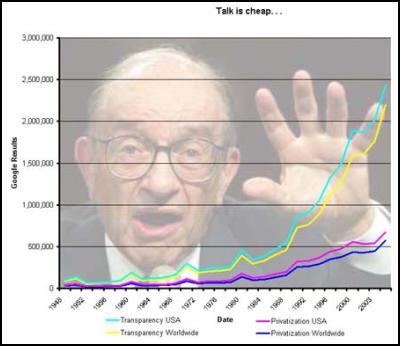
Frequency of usage of terms "transparency" and "privatisation"
in web-stored documents in Google universe. Contrast this with
the growth of US net foreign debt in the above chart...
- Image SandersResearch.Com
The US currency is managed by the Board of Governors of the Federal Reserve System, itself comprised of twelve privately owned Federal Reserve Banks, including the Federal Reserve Bank of New York, which in turn serves as depository for the US government bank accounts. The member banks that own and control the individual Federal Reserve Banks have received extraordinary credit and information subsidies through the governmental apparatus.
If you review a list of the leading banks in the Federal Reserve System that are involved as depositories, trustees, servicers or securities dealers in the US agencies missing more than $3.8 trillion:
It's the same banks whose names appear in allegations of gold market manipulations.[17] It's the same banks whose engineered Enron offshore deals.[18] It's the same banks implicated in 9/11 profiteering.[19] It's the same banks implicated by the big narcotics and arms trafficking and money laundering allegations.[20] . It's the same banks implicated directly or indirectly in the “pump and dump” and naked short selling stock market schemes.[21] It's the same banks implicated in black budget government contracting and collateral schemes and the fraudulent asset stripping of our great manufacturing enterprises.[22] It's the same banks that are managing the huge derivative positions that are increasingly used to manipulate markets and drive monetary and fiscal policy.[23] It's the same banks whose senior management, attorneys and accountants cycle in and out of the top government jobs at the agencies missing $3.8 trillion.[24] It's the same banks that tell you that small business loans are not good business.
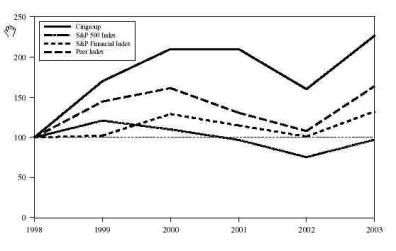
Click for big version
Cui Bono? - Was the 9/11 response good for Citicorp's investors?
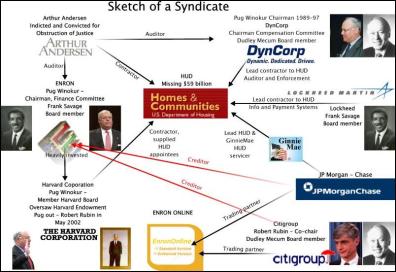
Click for big version
Sketch Of A Syndicate
- Image SandersResearch.Com
Banking Over Lunch
In 1993, in an attempt to obtain a small business loan for my business, I had lunch with the head of corporate lending in the DC area from a large multinational bank. He explained that his bank had no plans to make small business loans of any meaningful volume in the District of Columbia.
I had checked the bank’s latest SEC filings that morning. It had approximately $110 billion in long Treasury bonds on its balance sheet.
Essentially, the American taxpayers were providing this bank with the mechanism to borrow short term at a low price using the credit of the American people through federal deposit insurance, and then use those funds together with our deposits to lend those very same funds to our government long term at a 550 basis point spread.[25] The bank had a recourse guarantee of our taxpayer credit by investing in US Treasury securities which are guaranteed by the full faith and credit of the US government, and refused to lend to my small business because it was not good enough business for the bank.
I estimated that this particular bank would reap $6 billion in risk free profit that year alone by inserting itself as an unnecessary intermediary -- between businesses and individuals as depositors and guarantors, and the very same businesses and individuals in their capacities as US taxpayers financing the US Treasury “deficit.” The net result was that my taxes were financing my government “funneling” billions of dollars in back door profits to large banks, while I and my fellow citizens who were backstopping the FDIC and US Treasury credit that made it all possible were forced to go elsewhere to finance our small businesses.
To add insult to injury, government leaders such as Bob Rubin (former Treasury Secretary now co-head of CitiGroup) and Franklin Raines (former Director of the Office of Management and Budget and now Chairman of Fannie Mae) have explained that the government could not afford to finance parks, roads and schools because, instead we needed to pay the interest on the growing national debt. In fact, the “national debt” argument was a ruse. The actual intended use for American taxpayers’ hard earned money dedicated, nominally, to “reducing the national debt” was the financing of billions dollars of back-door, rigged subsidies to banks and mortgage market players who have made Rubin and Raines so rich.
And why should your children have to sign up for military service just so they can pay off their student loans, while at the same time $3.8 trillion is missing from the US government? Why can’t your children's educations be financed by our tax dollars? Investing in education is the best thing we can do for our economy. Indeed, Peter Drucker notes that the GI Bill was perhaps the most profitable taxpayer investment of the 20th century. Why should you lose your home or small farm to foreclosure by the banks that are complicit in $3.8 trillion missing from the federal government? Are you earning 2% on your bank certificate of deposit while your neighbors are paying interest at 18% to Citibank or the IRS?
At the Top of My List
Here is the "Dirty Dozen Plus" list of primarily US-based banks and financial institutions that I would immediately withdraw my support from based on personal knowledge and experience:
- American Insurance Group
- Bank of America
- Bank of New York
- BBT
- Citibank/Citigroup
- Credit Suisse First Boston
- Deutsche Bank
- FleetBoston
- General Electric
- Goldman Sachs
- HSBC Bank
- JP Morgan Chase
- Mellon Financial Corporation
- Merrill Lynch
- PNC
- SunTrust Banks
- Wachovia Bank
I would also check to see who the lead member banks are in my Federal Reserve District and include them on your list.[26]
If you have been complaining about corporate America overpowering our democracy, check and see if you are also doing business with one or more of these banks.
Who's Who on Outsourcing Our Jobs
I would also look at withdrawing support from those banks involved in outsourcing jobs to other countries while withdrawing financing for jobs in our communities. Enticed by significantly lower tax burdens and labor costs, as well as a free reign in labor exploitation, more and more companies are joining the bandwagon of job exports while supporting policies that prevent the creation of new jobs domestically.
On one hand, many Americans are losing their jobs and either have no means of income or support, or they settle for reemployment at wages insufficient to make ends meet. Their communities are suffering diminished quality of life from lower tax collections, higher crime rates, decreased health, low morale and the family and community problems that unemployment and underemployment cause.
On the other hand, their lucky neighbors who still enjoy nice incomes – often coming directly or indirectly from the profits of outsourcing -- promote the notion that such outsourcing is the natural flow of free markets optimizing economic performance. Alas, I wish it were true.
Analysis of the financial institutions that are the power behind the throne at the New York Federal Reserve and the US Treasury reveals a pattern of dirty tricks to: (1) stop policies that would permit the US work force to reengineer their skills;[27] (2) prevent the flow of equity capital to small business;[28] (3) subsidize themselves with insider trading and risk free federal credit profits; (4) maintain complicity in the trillions of dollars missing from the federal government;[29] and (5) prevent place based transparency of government budgets and credit activity that would reveal their complicity.
This is not free markets at work – this is the use of insider dealings, cronyism, undue influence, political favoritism based upon a corrupt campaign finance system, and misuse of the federal credit, not to mention black budget and covert operation activities, to profit from the destruction of free markets.[30]
Lou Dobbs at CNN has been keeping a list called “Exporting America” of companies that outsource US jobs abroad, including the following banks.[31] Here are the banks on the Dobbs' list:
- Bank of America
- Bank of New York
- Bank One
- Citigroup
- JP Morgan Chase
- Mellon Bank
- SunTrust Banks
- State Street
- Sovereign Bank
- Wachovia Bank
- Washington Mutual
If you have been complaining about outsourcing of US jobs and you are banking at one of these banks, you need to go into your bathroom and look in the mirror. That is the person who is financing the outsourcing of US jobs.
When You Steal From Me, It's Personal
Someday someone will calculate the true cost to our families, our communities, our collective spirit and our environment worldwide, inflicted by this negative ROI economy. In the meantime, we can assume that the cost is somewhere between significant and staggering. In other words, the cost to you personally, to me personally, to each of our families, is significant.
This first hit me several years ago when I was working in an official capacity for HUD (the US Department of Housing and Urban Development) and had experienced first hand the affects of fraud and corruption. A Congressional staff member told me, “HUD is being run as a criminal enterprise.” Indeed, in fiscal 1998 and 1999, $17 billion and $59 billion respectively were officially reported as missing from HUD.[32]
I realized then that I was banking at the same banks I believed to be intimately involved in running HUD’s extra curricular activities. I realized that my own banks and others that I had done business with were directly or indirectly costing me and my family a small fortune when I took into account my relationship with them as a citizen and taxpayer and their role as depositories and servicers for my government’s financial dealings.[33]
It seemed to me that the least I could do was to try to clean up my own money. I decided I would learn how to “vote” with my money in the marketplace with all my transactions, including purchases, investments and banking relationships. I would start by withdrawing my money from the banks that were running my government's bank account and securities operations in a corrupt manner at great expense to my family and me. I would shift my deposits to banks and companies that were trying to do something beneficial on Main Street.
I closed my accounts at Citibank and JP Morgan Chase and moved my bank deposits to a community bank in Tennessee.
If Acting With Your Conscience Isn’t Enough, Consider the Pricing
Since that time I have traveled around this and other countries speaking and networking with thousands of people. What I hear wherever I go is that we are voting in the marketplace as consumers for the very banks whose actions we say we detest.
How many times have I heard activists tell me that they cannot switch their bank accounts to well-managed local banks because their ATM fees would increase or their interest on savings would decrease? Apparently, we are prepared to finance and support a group of banks complicit in stealing $14,000 per American resident from the federal government so long as they kick back $25 a year to us in the form of saved ATM fees and incrementally higher interest rates. It's one thing to be apathetic and go with the convenient flow of dirty money. It's another thing entirely to fail to price your kickback at anything close to a free market level. If someone steals $14,000 from you and then kicks back $25, do you continue to support them? Apparently, the answer is “Yes.”
The day we understand the power of our opportunity to decentralize and “re-price” our banking business by taking it away from the Wall Street banks listed above, and banks like them, something magical can start on Main Street.
Care to Join Me in Switching Banks?

On July 4th, 2004, my colleagues and I are launching the Solari Circles Campaign. Initially, we are calling for 600,000 people worldwide to join us in closing our checking accounts, certificates of deposit, credit cards and other business out of the banks complicit in dirty money scandals and moving them to local, well-managed, community-friendly banks, savings and loans and credit unions.
Why 600,000? We estimate that 600,000 is 1% of 1% of our worldwide population. Since our financial system is highly leveraged, a relatively small shift (on the order of 1% of 1%) in customers from big banks to local financial institutions can cause a dramatic decentralization in political and economic power.
As a former partner and member of the board of directors at a major Wall Street investment bank and then Assistant Secretary of Housing in the first Bush Administration, I am amazed when people tell me that they feel helpless or that they have no power. I know from personal experience that we have significant power as consumers to impact the policies of financial institutions that exercise so much control over our government and communities. I know what can happen the minute even a small group of consumers starts "voting with our money" in the marketplace.
I also know that we can actually make money by “pushing the red button.” In financial terms, if we finance communities with equity while we bring transparency to government investment by place, and reengineer that investment to ensure optimal human and financial performance both by place and by function, we have the potential to bring the US economy back to a significantly more productive level.[34] In layman’s terms, if we shift our purchases, banking and investing to the local level, change how small businesses and farms get financed, and at the same time transform how government money is invested at the local level, we can transform from a negative to a positive return on investment economy.
That means we can pay off, convert to equity and eliminate or forgive significant amounts of debt and cleanse our system of governance of the dirty money that is pushing us towards warfare, environmental damage and a significant reduction in our Constitutional freedoms.
Let’s Start Now

Click for Solari Home Page
Whatever your spiritual, moral or ethical practice, my colleagues in the Solari Action Network and I invite you to make a commitment to start now to “vote” with your bank deposits for the values that you wish to govern our world and to do so in a manner that enhances your personal financial security.
If you are a Buddhist, ask yourself, “Where would the Buddha bank?”
If you are a Muslim, ask yourself, “Where would Mohammad bank?”
If you are a Confucian, ask yourself, “Where would Confucius bank?”
If you practice Judaism, ask yourself, “Where would Moses bank?”
If you are a Christian, ask yourself, “Where would Jesus bank?”
Whatever your spiritual or ethical tradition, ask yourself where the person of the highest integrity in history would bank if he or she were alive today.
Then look in your wallet and in your checkbook and ask yourself if you have an opportunity to vote with your banking business to build a better world. A world that is in alignment with people, dolphins, trees, all other living things and the true best interests of small and large investors. A world that is safer and more prosperous for you and your family and your retirement savings.
Imagine the magical things that can happen when we take the time to understand and cleanse our own money. Imagine how magical things could be when enough of us tip the scale to the point that shareholders of JP Morgan Chase and Citibank start to insist that these banks should cleanse their money and operations to win back our business or the business of the companies we also pressure to switch? Indeed, feel free to buy a few shares of their stock so that you can go to their annual meetings and express yourself on these matters of vital interest to all of us. At Solari, we welcome any financial leader to join us in devising ways to generate new profits and capital gains with clean money and honest values. We invite JP Morgan Chase and Citibank to participate in a new way of doing business. We will continue to encourage global depositors to withdraw their accounts until we have created rich incentives for them to do so.
Until that time, we look forward to the energy that can be created on Main Street when the honest bankers and credit union leadership and their investors and supporters who have been struggling to attract our business can start to enjoy the fresh new resources that come their way as we shift our deposits and our attention. Imagine their delight at having the resources they need to revitalize struggling small businesses and incubate new startups.[35] Can you imagine what happens as we start to create a new generation of banking leaders who can make money from bringing some good old fashioned transparency, accountability and integrity to our financial system?
All those times that I have sat in the board room or at the highest levels of government arguing for the ethical solution, what I would have given to be able to say that the customers would back me up in the marketplace!
Is switching our banking business enough to fix all our problems? No. Are their many additional things we need to do? Yes. However, it all starts by incrementally switching our financial and market flows back into the hands of those we can trust. This will pave the way for migrating to digital gold or community currencies and other profitable initiatives in our area. Let's switch resources now to prime the pump and begin an honest conversation about all the opportunities that could be next.
If you believe that you have an opportunity to better reflect your values in how you transact your banking business, please join the Solari Circles Campaign at http://solari.com for some financial fireworks on July 4th and beyond as we embark on cleansing our economy, and our world, together!

For more on the Solari Circles Campaign
http://www.solari.com/campaign/july4th.htm
1. This article originates from the Christian tradition. We invite you to ask this question for Buddha, Mohammed, Moses or the spiritual presence most in your heart and to transform the intent into words that speak to you in your own traditions.
2. While the financial networks in and around the Vatican and related networks and societies such as the Jesuits and Opus Dei,are not known for financial transparency, starting points include stories related to Vatican banking scandals, including the laundering of Nazi monies and the Banco Ambrosiano scandals. See, Rupert Cornwell, “Sex, Fraud, Money Laundering: All Roads lead to Rome,” . and God’s Banker: The Life and Death of Roberto Calvi (New York: HarperCollins Publishers, July 6, 1984). The role of tax exempt endowments in the corruption of our markets and government has become increasingly illuminated with revelations about the role of the Harvard Endowment and its involvement in the Enron scandals, Russian money laundering, Harken-related insider trading and HUD fraud. See, “Negative ROI Economy, Articles and Documentation,” http://www.solari.com/gideon/articles_risk.html and, generally, articles published on the Harvard Watch website, available at http://www.harvardwatch.org.
3. For excellent examples describing organized crime spanning corporate, government and mafia networks, see European Union lawsuit against RJR Nabisco at http://www.scoop.co.nz/mason/stories/HL0211/S00167.htm, The Real Deal on Enron by Daniel Armstrong, http://www.scoop.co.nz/mason/stories/HL0304/S00031.htm and Kevin Phillip's book, American Dynasty
4. See, links on Dark Alliance and Mena allegations regarding government sponsored narcotics trafficking at the “Stanley Sporkin, Bio & Selected CIA Iran Contra Background,” http://www.solari.com/media/SporkinBio.html and bibliography at Catherine Austin Fitts, “Narco Dollars for Beginners,” The Narco News Bulletin,, available online at http://www.narconews.com/narcodollars1.html.
5. See, links at the “Stanley Sporkin, Bio & Selected CIA Iran Contra Background,” http://www.solari.com/media/SporkinBio.html and bibliography at Catherine Austin Fitts, “Narco Dollars for Beginners,” available at http://www.narconews.com/narcodollars1.html.
6. See, “A Negative Return on Investment Economy – Articles & Documents,” at http://www.solari.com/gideon/articles_risk.html.
7. See, “Transcript of Interview of Greg Palast, Journalist for BBC and Observer, London, “Alex Jones Radio Show (March 4, 2002), available at http://www.solari.com/gideon/privatization030402.html, and Catherine Austin Fitts, “The Myth of the Rule of Law,” available online at http://www.solari.com/gideon/articles/q301.pdf.
8. See, Chris Sanders, “Where is the Collateral?”republished from Scoop Media (October 28, 2003), available at http://www.whereisthemoney.org/S00223_collateral.htm.
9. See, Chris Sanders “Independence Day Special -- So, Where is the Collateral?”(July 5, 2004) available online at http://www.sandersresearch.com.
10. See, “Transcript of Interview of Greg Palast, Journalist for BBC and Observer, London, “Alex Jones Radio Show (March 4, 2002), available at http://www.solari.com/gideon/privatization030402.html
11. See, Kelly O'Meara, “Looting Russia's Free Market,” Insight Magazine Online, http://www.insightmag.com/main.cfm?include=detail&storyid=260507 .
12. See, Stephen F. Cohen, Failed Crusade: America and the Tragedy of Post-Communist Russia, (New York: W.W. Norton & Company, 2001 (2nd ed.)).
13. See, Catherine Austin Fitts, “The Promis-Like Profits of the Harvard Endowment,” Scoop Media (July 23, 2002) athttp://www.scoop.co.nz/mason/archive/scoop/stories/b1/51/2002… .
14. See, Catherine Austin Fitts, “CSC DynCorp and the Economics of Lawlessness,” available at http://www.scoop.co.nz/mason/stories/HL0304/S00158.htm
15. See, Catherine Austin Fitts, “Where is the Money?” available at Http://whereisthemoney.org, “Missing Money Articles and Documents” at http://www.solari.com/learn/missingmoney.htm and “NASA Missing $565 Billion,” at http://www.solariactionnetwork.com/phpBB2/viewtopic.php?t=1167 .
16. See, Kelly O'Meara, “Treasury Checks and Unbalances,” Insight On the News, (Posted April 14, 2004) at http://www.insightmag.com/news/2004/04/27/National/Treasury.Checks.And.Unbalances-658744.shtml.
17. See, generally, the website of the Gold Anti-Trust Action Committee at http://www.gata.org.
18. See, “Enron suit implicates nine US banks,” BBC News (April 8, 2002) available at http://news.bbc.co.uk/1/hi/business/1917627.stm and Daniel Armstrong, “The Real Deal About Enron – An Interview with Catherine Austin Fitts,” Scoop Media, available at http://www.scoop.co.nz/mason/stories/HL0304/S00031.htm
19. See, Catherine Austin Fitts, “An Open Letter to Jerry Hawke, Comptroller of the Currency United States Treasury” Scoop Media (June 9, 2004) available at http://www.scoop.co.nz/mason/stories/HL0406/S00083.htm and “Cui Bono 9/11” Scoop Media (June 4, 2004) http://www.scoop.co.nz/mason/archive/scoop/stories/51/f6/200406042049.5f158db0.html and John Crudele, “Fed Fudged Accounting After 9/11, Says Bank Big,” New York Post Online Edition (May 27, 2004) at http://nypost.com/business/21675.htm
20. See, Al Giordano, “CitiGroup's Rubin – Banking on Terror,” Narco News 2001 (October 15, 2001) available at a href= http://www.narconews.com/whitecollarterror1.html > http://www.narconews.com/whitecollarterror1.html and bibliography at Catherine Austin Fitts, “Narco Dollars for Beginners,” Narco News 2001 (October 24, 2001), at http://www.narconews.com/narcodollars1.html
21. For the magnitude of current levels of stock manipulation fraud, see the Stanford Securities Class Action database at http://securities.stanford.edu/filings.html
22. See, Catherine Austin Fitts, “Piracy on the Delaware,” Scoop Media (May 20, 2004), available at http://www.scoop.co.nz/mason/stories/HL0405/S00206.htm .
23. See, “Buffet Warns of Investment Time Bomb,” BBC News World Edition (March 4, 2003), available at http://news.bbc.co.uk/2/hi/business/2817995.stm .
24. See, William L. Watts, “Mastering the Capitol Universe, Goldman Sachs Alumni Make Their Mark in Washington,” CBS.MarketWatch, posted July 3, 2004, at http://www.solariactionnetwork.com/phpBB2/viewtopic.php?p=3311#3311 .
25. The difference between 2% and 7.5% is 550 basis points. So, in this example, the bank was raising money in the short-term maturity markets or in deposits using federal deposit insurance at a low interest rate and lending it back to the US government at a much higher rate.
26. See Links for the Federal Reserve Districts & Banks at http://www.federalreserve.gov/otherfrb.htm - you can call the public affairs office in the Federal Reserve Bank in your district and ask for a list of their top 10 member banks, or check with the American Bankers Association for the largest banks.
27. See, Catherine Austin Fitts, “The Story of Edgewood Technology Services,” available at http://www.scoop.co.nz/mason/stories/HL0207/S00101.htm .
28. See, Catherine Austin Fitts, “Litigation”, http://www.solari.com/gideon
29. See,[note italix] Catherine Austin Fitts, “The Myth of the Rule of Law,” available online athttp://www.solari.com/gideon/articles/q301.pdf.
30. See, Catherine Austin Fitts, “Black Budgets and the Manipulation of Markets,” available at http://www.financialsense.com/Experts/2004/AustinFitts.html and Chris Sanders and Catherine Austin Fitts, “Fascinating and Lucrative Patriotism, The negative return economy: a discourse on America’s black budget,” available at http://www.sandersresearch.com/Sanders/NewsManager/ShowNewsGen.aspx?NewsID=667.
31. See, the “Exporting America” link of the “Lou Dobbs Tonight” website at http://www.cnn.com/CNN/Programs/lou.dobbs.tonight/ .
32. See, Kelly O’Meara, “Why is $59 Billion Missing from HUD?,” Insight On The News (November 2000), available at http://www.insightmag.com/main.cfm?include=detail&storyid=208636 and “Cuomo leaves HUD in Shambles,” Insight On the News (March 5, 2001), available at , http://www.insightmag.com/main.cfm?include=detail&storyid=210881 and “Inside HUD's Financial Fiasco,” Insight On the News (June 25, 2001), available at http://www.insightmag.com/main.cfm?include=detail&storyid=161113
33. See, Catherine Austin Fitts, “The Myth of the Rule of Law: The Destruction of Hamilton Securities,” (November 2001),http://www.solari.com/gideon/articles/q301.pdf
34. See,[note italix] Catherine Austin Fitts, “Solari and the Rise of the Rule of Law,” available online at http://www.solari.com/solari.
35. See, Catherine Austin Fitts, “The Community Wizard of Sebastopol,” available at http://www.scoop.co.nz/mason/stories/HL0303/S00231.htm
Catherine Austin Fitts is the President of Solari, Inc., a member of the board of directors of 911Truth.org and of the advisory board of Sanders Research Associates. Ms. Fitts is the former Assistant Secretary of Housing-Federal Housing Commissioner during the first Bush Administration, a former managing director and member of the board of directors of Dillon Read & Co. Inc. and President of The Hamilton Securities Group, Inc.
| THIS ISSUE | Lead | NZ News | NZ Politics | World News | Features |
Comment & Opinion
 Demographics: Tze Ming Mok Considers The Census - They're taking over. The 'New Zealanders' I mean. As you can see, they're actively killing off the white-folk, looting their homes and renaming their children. Once this demographer realises that we 350,000 'Asians' aren't actually one ethnic group, she may choose instead to worry about the 'New Zealanders' threatening to outnumber Maori to become the minority with the most leverage. See... Public Address 07/12/06 - The Identity Game . For more Public Address see also… Public Address 06/12/06 - Where You Heard It First, Public Address 05/12/06 - Doing The Rounds & Public Address 04/12/06 - How To Smoke An MP
Demographics: Tze Ming Mok Considers The Census - They're taking over. The 'New Zealanders' I mean. As you can see, they're actively killing off the white-folk, looting their homes and renaming their children. Once this demographer realises that we 350,000 'Asians' aren't actually one ethnic group, she may choose instead to worry about the 'New Zealanders' threatening to outnumber Maori to become the minority with the most leverage. See... Public Address 07/12/06 - The Identity Game . For more Public Address see also… Public Address 06/12/06 - Where You Heard It First, Public Address 05/12/06 - Doing The Rounds & Public Address 04/12/06 - How To Smoke An MP  MOTORNET: Karl Ferguson Takes A Lexus For A Spin In The Rain - “You know, that really is a good looking car,” my boss said rather wistfully as he stared out my office window at the car-park five floors below. “In fact, it’s probably the first Lexus I would seriously consider buying.” See... MOTORNET: Sexy Lexy? – Lexus IS250
MOTORNET: Karl Ferguson Takes A Lexus For A Spin In The Rain - “You know, that really is a good looking car,” my boss said rather wistfully as he stared out my office window at the car-park five floors below. “In fact, it’s probably the first Lexus I would seriously consider buying.” See... MOTORNET: Sexy Lexy? – Lexus IS250
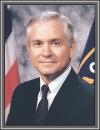 Iraq: America Reconsiders Its War And Its War Leadership - For most Americans, as the recent midterm elections made clear, the issue is how do we get our young men and women out of Iraq as quickly and safely as possible. For the Administration, it would appear that the issue is how to avoid blame for the catastrophe of Bush's war and occupation. See... Bernard Weiner: Who Brought Us to the Iraq Abyss?
Iraq: America Reconsiders Its War And Its War Leadership - For most Americans, as the recent midterm elections made clear, the issue is how do we get our young men and women out of Iraq as quickly and safely as possible. For the Administration, it would appear that the issue is how to avoid blame for the catastrophe of Bush's war and occupation. See... Bernard Weiner: Who Brought Us to the Iraq Abyss?
MORE:
 American Coup: A Survey Of Evidence of 2006 Election Fraud - Though Democrats, the American people, and the world won a great victory last month, we must not let that lull us into a false sense of security about our election system. Democrats took over the U.S. House and Senate because of a popular mandate so large that Republicans couldn’t steal enough seats to maintain control of either chamber. But before anyone conclude that the 2006 mid-term election results provide reason to be unconcerned or less concerned about the threat of election fraud, let’s consider some of the evidence… See... Time For Change: Evidence of 2006 Election Fraud
American Coup: A Survey Of Evidence of 2006 Election Fraud - Though Democrats, the American people, and the world won a great victory last month, we must not let that lull us into a false sense of security about our election system. Democrats took over the U.S. House and Senate because of a popular mandate so large that Republicans couldn’t steal enough seats to maintain control of either chamber. But before anyone conclude that the 2006 mid-term election results provide reason to be unconcerned or less concerned about the threat of election fraud, let’s consider some of the evidence… See... Time For Change: Evidence of 2006 Election Fraud
MORE:
 Israel/Occupied Palestine: Perspectives On Middle East War & Peace - A FRIEND of mine, who was brought up in Egypt, took part in the interrogation of Egyptian officers captured in the 1956 Sinai war. An Egyptian lieutenant-colonel told him: "Every time David Ben-Gurion gave a speech declaring that he was holding out his hand for peace, we put our forces on alert." See… Uri Avnery: A Sparkling Bubble
Israel/Occupied Palestine: Perspectives On Middle East War & Peace - A FRIEND of mine, who was brought up in Egypt, took part in the interrogation of Egyptian officers captured in the 1956 Sinai war. An Egyptian lieutenant-colonel told him: "Every time David Ben-Gurion gave a speech declaring that he was holding out his hand for peace, we put our forces on alert." See… Uri Avnery: A Sparkling Bubble
MORE:
MORE SCOOP COMMENT AND OPINION:

